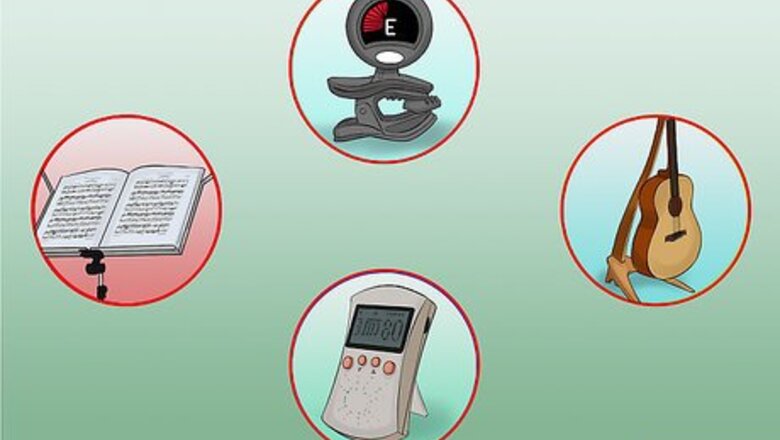
views
Organizing Yourself and Your Materials
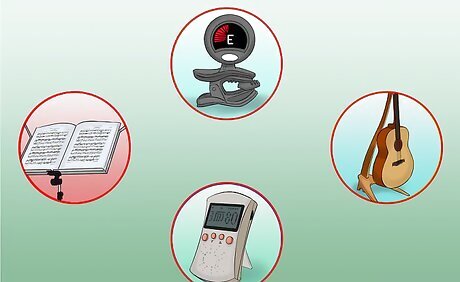
Gather your tools and materials. Before you start practicing, make sure you have your sheet music, your music stand, your instrument, as well as a timer, a tuner, a metronome, and any other helpful tools you may need. Also keep a pencil, a pencil sharpener, and a clean eraser nearby. By gathering these items before you start working, you’ll keep yourself from having to break concentration to find them in the middle of your practice session.

Pick somewhere quiet to practice. By designating a certain separate room or area as your practice space, you can eliminate distractions and also prepare yourself mentally for mindful work. Try practicing in a room of your house that people spend less time in, such as the formal dining room. Any area like this will keep you away from distractions such as a conversation between family members in the kitchen or a TV that’s on in the living room.
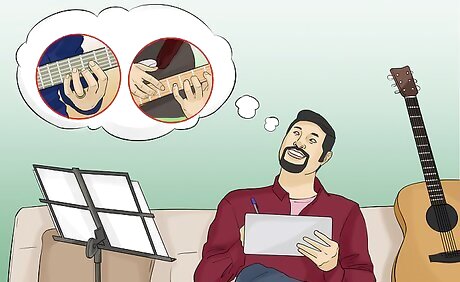
Set a goal. It’s better to have something to work towards than to just start playing music without intention. Think about what you’d really like to accomplish during each practice session and focus on that goal throughout it. For instance, you might be really close to mastering a piece but still have a couple problem spots. Consider aiming to play the piece through perfectly at least one time during the practice session. For example, if you want to improve the sound of your guitar, consider setting a goal to achieve a better sound by experimenting with different hand positionings. If you aren’t sure how to set your goals, ask you music teacher what you need to work on at the end of lessons and/or class. Write this down and refer back to it when you practice on your own.
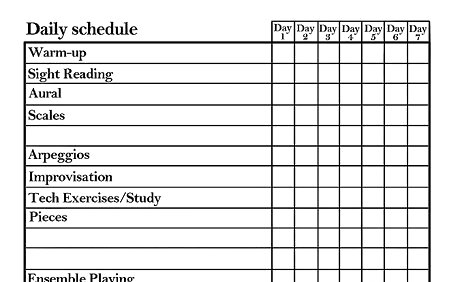
Create a practice schedule and stick to it. The amount you should practice depends on what your skill level is, how old you are, and how dedicated you are to progressing quickly. If you want to advance, you should play your instrument 6 days a week, whether that’s for 15 minutes or 2 hours each day. Pick consistent times and days that work best for you and always practice when you’re scheduled to. If you want to practice for 6 hours a week, you might schedule practice time from 3:00pm to 4:00pm every Sunday-Friday.
Completing a Basic Practice Session

Warm up first. Once you have everything set up and ready, spend about 5-10 minutes working on scales and doing other warm-up activities. You can also do some breathing and stretching exercises at this time.
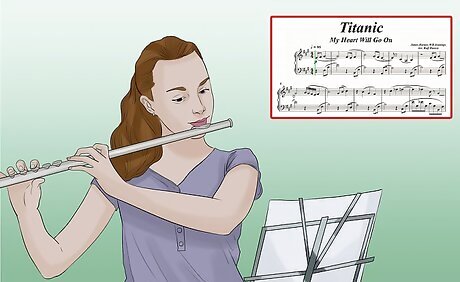
Work towards your goal. After you’ve warmed up, dive right into accomplishing your goal. Take your time and stay focused.This is the most important part of the practice session and should take the most amount of time, whether that means 20 minutes or an hour.
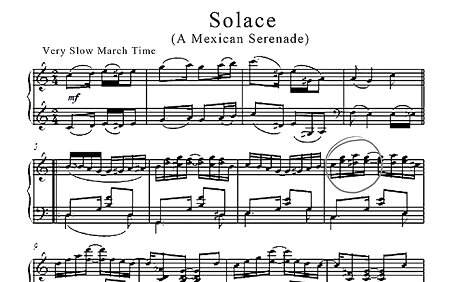
Use a practice notebook. Even if you’ve played a piece a lot, it’s better to read what you’re playing and not rely on your memory. By always using your practice book, you can use the mental effort it takes to remember the notes on something else, such as tone quality or tempo.
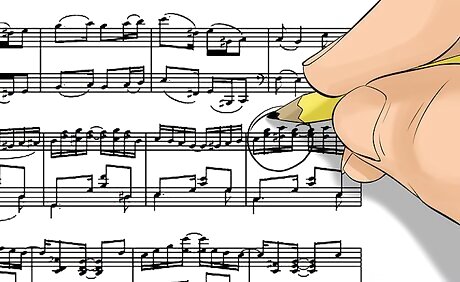
Take notes in your practice book. As you work through pieces, use your pencil to highlight problem areas and give yourself reminders. These little bits of information should help you to play the piece better and with more awareness. Write down things that may help you remember best practices, such as "Take a short breath" or "add a crescendo."
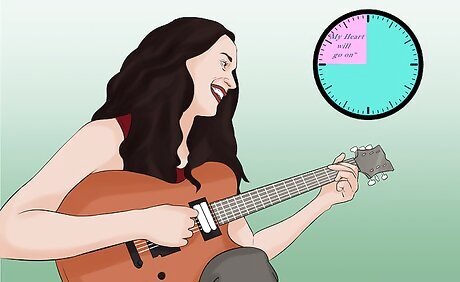
Play something fun and easy at the end. Once you’ve reached your goal, spend the last 10-15 minutes in playing your most favourite song/chord which you mostly like ever and just play with some happiness to finish with a positive attitude.
Challenging and Helping Yourself
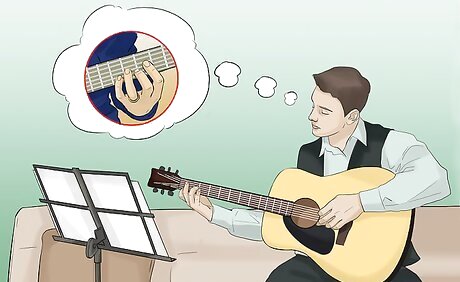
Play smarter. When you’re playing a challenging piece, don’t just play it all the way through over and over and over again while continuously making errors. This is a waste of time. Instead, take a step back and identify and analyze the problem. Then, brainstorm solutions, experiment with them, and implement the best one. For example, if a note comes out flat each time you play it on your trumpet, first identify what you want it to sound like. Then, try to think about the different possible causes of the sour note. Slightly adjust your fingering and your mouth until you discover an adjustment that allows you to play the note properly.
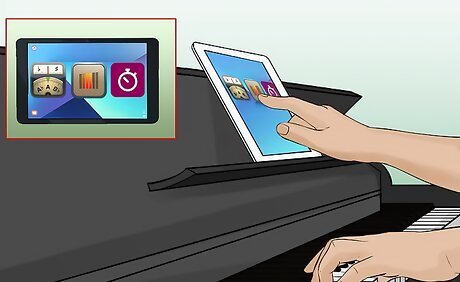
Use technology to your advantage. There are several free or inexpensive apps that act as timers, metronomes, tuners, and more. Consider using these when you’re on the go so that you don’t have to tote around extra tools and materials. Also, check out different lessons and tutorials on sites like Youtube that can help you solve any specific issues you’re having without paying for a lesson.
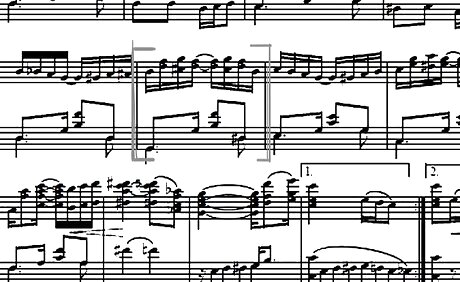
Focus on your problem areas. It’s not always necessary to start at the beginning and play a piece through to the end over and over. If you’re having a problem with a couple measures in the middle of the piece, focus more on that section. This will save you a lot of time and allow you to make more progress.
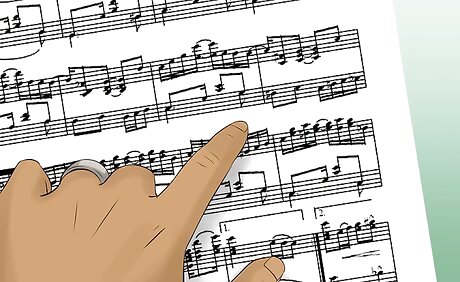
Read through the music without your instrument. When you aren’t practicing and you have a couple minutes of down time, take out your music or pull it up on your phone and just carefully read through it a few times to familiarize yourself with it more. You can read through your music while you’re riding in the car to get to school or waiting in a long line at the post office.
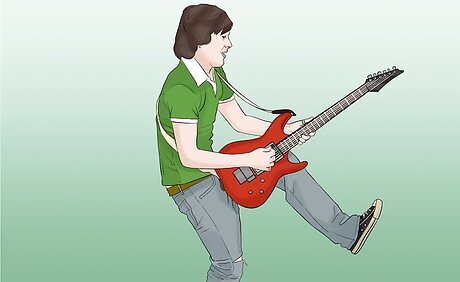
Make tasks harder by physically challenging yourself. Add a physical component to your practicing that you don’t normally have to deal with. By making a challenging addition to practicing your instrument, you’ll make playing normally feel easier. For example, try to play your instrument while standing on one leg.

Practice at productive times of day. Everyone has more energy at certain times of the day than at others. Pay attention to what time of day you seem to be the most awake, focused, energetic, and clear-headed. Try to practice your instrument during these times.
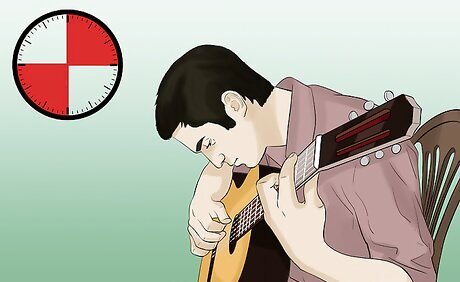
Practice only for as long as you can focus. In order to make progress during a practice section, you have to be completely focused and mindful. This might mean practicing for just 10 minutes when you’re younger and then working up to 45 minutes or an hour once you’re older and have developed better concentration skills. If you can only keep your attention on something for 15 minutes at a time, then play for 15 minutes, put down your instrument and take a break for a couple minutes, and then play for another 15 minutes.


















Comments
0 comment